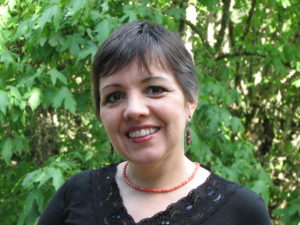 If you are a Fortune 500 company, your reasons for investing in localization often include expanding and growing your global sales. But if you are Mayo Clinic, the #1 ranked hospital in the United States according to U.S. News & World Report, your primary objective for localization is to ensure the needs of the patient come first.
If you are a Fortune 500 company, your reasons for investing in localization often include expanding and growing your global sales. But if you are Mayo Clinic, the #1 ranked hospital in the United States according to U.S. News & World Report, your primary objective for localization is to ensure the needs of the patient come first.
Gianna Martella, Senior Editor for the Global Business Solutions Unit at Mayo Clinic, said Mayo Clinic fulfills this goal by providing accurate and actionable health information for patients.
With its full website in English, Spanish and Arabic, and microsites in Simplified Chinese and Portuguese, Mayo Clinic’s briefs about medical procedures, symptoms, conditions, diagnosis, treatments, and definitions of medical terminology, offer patients easy to understand and actionable health information. In addition, documentation like forms, instructions and applications have also been translated for patients with limited or no command of English.
“We know that much of the medical content available through the Internet can be less than accurate, and some of it is written in such a way as to be alarming,” said Martella. “We aim to offer the lay person access to trusted health information in languages other than English, believing that informed patients and consumers tend to make better decisions, which results in better outcomes.”
Possessing advanced degrees in languages, translation, and literature, Martella worked for many years as a freelance translator, certified court interpreter and owner of her own small translation business. With this extensive experience, Martella said that her position as a Senior Editor was a logical progression in her career. “While the term ‘localization’ was fairly new to me, the idea of adapting local cultural concepts and regionalisms when translating content was not new.”
“Because we want to reach as many people worldwide as we can, we are using a very neutral version of the languages into which we translate,” Martella said. “We stay away from slang and from regionalisms. Since the content from our group has been written in a warm and conversational tone, in Spanish we use the informal form of the second grammatical person. However, we avoid that if culturally inappropriate.”
While Mayo Clinic strives to translate and adapt content for as many people as possible, there are several obstacles that must be overcome when localizing their specialized content.
“One of our challenges is to ensure that the quality and accuracy of our English content is mirrored in the translations, and this can be challenging when you are a large organization with campuses across several states,” Martella said. “Another challenge is the time needed to update translations after the English originals have been revised. While we would like for our audience to be able to access the updated translations immediately, there are several quality and accuracy checks required before the content is ready in other languages.”
Martella’s localization wish list includes incorporating technology into Mayo Clinic’s translation program. “Mayo Clinic is a non-profit, so ‘unlimited budget’ is not in my vocabulary,” said Martella. “That said, I wish for affordable machine translation capabilities that are provably and reliably accurate to assist – but not replace – our human translators, who are essential to producing trusted health information in other languages.”
In her role as Senior Editor, Martella interacts with people in several different groups at Mayo, such as Content Syndication, Office of Patient Education, and Language Services, an office where translators and interpreters provide linguistic services directly to patients. “There are many things I like about my job with Mayo Clinic,” Martella said. “My job is very interesting, I get to learn something every day and I work with some very dedicated individuals.”
Martella feels that Mayo Clinic continues to be successful in its primary goal of putting patient needs first. “I believe it is very important that Mayo is working on localizing our content because of its value to the users,” Martella said. “It is also a wonderful opportunity for me, because Mayo as an institution recognizes the value of translations that are accurate and well done.”